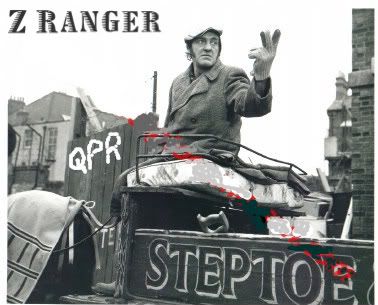Post by Macmoish on Aug 31, 2010 7:01:43 GMT
When Saturday Comes (WSC)
Salisbury City fighting back after enforced relegation
30 August ~ Cases of lower-league clubs suffering traumatic financial disintegration have been an all too common in recent seasons, but few of these collapses have resulted in such controversial circumstances as that of Salisbury City. After falling into administration last summer, Salisbury became subject to the Conference’s infamous Appendix E, a ruling that requires all clubs that file for bankruptcy to pay off their creditors by a given deadline. In the Wiltshire club’s instance this deadline was given as the second Saturday in May and, after the cut-off had passed, Salisbury were consigned to automatic relegation down two levels of the football pyramid to the Southern Premier.
However, Salisbury have since argued that they had paid off all their debts bar a sum of £228,000 owed to the Her Majesty’s Revenue and Customs – the tax office having turned down a lump sum payment shortly before the spring deadline – and so should not have been subjected to the harsh punishment which followed. To make matters worse, the rule by which the club were demoted was scrapped just weeks later.
In the wake of the double relegation the club was understandably beset by upheaval over the summer. Manager Tommy Widdrington, who took over from Nick Holmes this time last year, left in July to become assistant manager to Paul Sturrock at Southend United, a move that directly opposed the message of “continuity” he had been preaching ever since the League’s decision had been finalised. Shortly afterwards Holmes, the general manager and architect of the Whites' rise up the league (with three promotions in eight seasons), also departed, his wages deemed unsustainable by the new owners, a local consortium who took over in January and steered the club out of administration.
Player sales were another inevitable by-product of Salisbury’s financial readjustment. Matt Tubbs – who scored 99 league goals in seven years at the club – joined Crawley Town and was followed out the exit door by other first-team regulars. There were also non-football problems, with concerns that local council plans to build new houses on the stadium’s brownfield site would make the club homeless, although fears were quickly allayed when the consortium announced that their 14-year lease on the stadium had recently been renegotiated.
However, despite all the disruption and tumult that has enveloped them of late, Salisbury City have emerged from a difficult few months in relatively good health. Club captain Darrell Clarke was appointed player-manager at the start of August and has set about building a team equipped to negotiate a swift path out of the seventh tier. There are concerns among supporters that a group of players encouraged to play patient possession football will suffer against more physical teams on rapidly deteriorating winter pitches, but such worries can wait. After months of coping with financial decay, Salisbury City are back on their feet.
Chris Mann
www.wsc.co.uk/content/view/5724/38/
Salisbury City fighting back after enforced relegation
30 August ~ Cases of lower-league clubs suffering traumatic financial disintegration have been an all too common in recent seasons, but few of these collapses have resulted in such controversial circumstances as that of Salisbury City. After falling into administration last summer, Salisbury became subject to the Conference’s infamous Appendix E, a ruling that requires all clubs that file for bankruptcy to pay off their creditors by a given deadline. In the Wiltshire club’s instance this deadline was given as the second Saturday in May and, after the cut-off had passed, Salisbury were consigned to automatic relegation down two levels of the football pyramid to the Southern Premier.
However, Salisbury have since argued that they had paid off all their debts bar a sum of £228,000 owed to the Her Majesty’s Revenue and Customs – the tax office having turned down a lump sum payment shortly before the spring deadline – and so should not have been subjected to the harsh punishment which followed. To make matters worse, the rule by which the club were demoted was scrapped just weeks later.
In the wake of the double relegation the club was understandably beset by upheaval over the summer. Manager Tommy Widdrington, who took over from Nick Holmes this time last year, left in July to become assistant manager to Paul Sturrock at Southend United, a move that directly opposed the message of “continuity” he had been preaching ever since the League’s decision had been finalised. Shortly afterwards Holmes, the general manager and architect of the Whites' rise up the league (with three promotions in eight seasons), also departed, his wages deemed unsustainable by the new owners, a local consortium who took over in January and steered the club out of administration.
Player sales were another inevitable by-product of Salisbury’s financial readjustment. Matt Tubbs – who scored 99 league goals in seven years at the club – joined Crawley Town and was followed out the exit door by other first-team regulars. There were also non-football problems, with concerns that local council plans to build new houses on the stadium’s brownfield site would make the club homeless, although fears were quickly allayed when the consortium announced that their 14-year lease on the stadium had recently been renegotiated.
However, despite all the disruption and tumult that has enveloped them of late, Salisbury City have emerged from a difficult few months in relatively good health. Club captain Darrell Clarke was appointed player-manager at the start of August and has set about building a team equipped to negotiate a swift path out of the seventh tier. There are concerns among supporters that a group of players encouraged to play patient possession football will suffer against more physical teams on rapidly deteriorating winter pitches, but such worries can wait. After months of coping with financial decay, Salisbury City are back on their feet.
Chris Mann
www.wsc.co.uk/content/view/5724/38/






